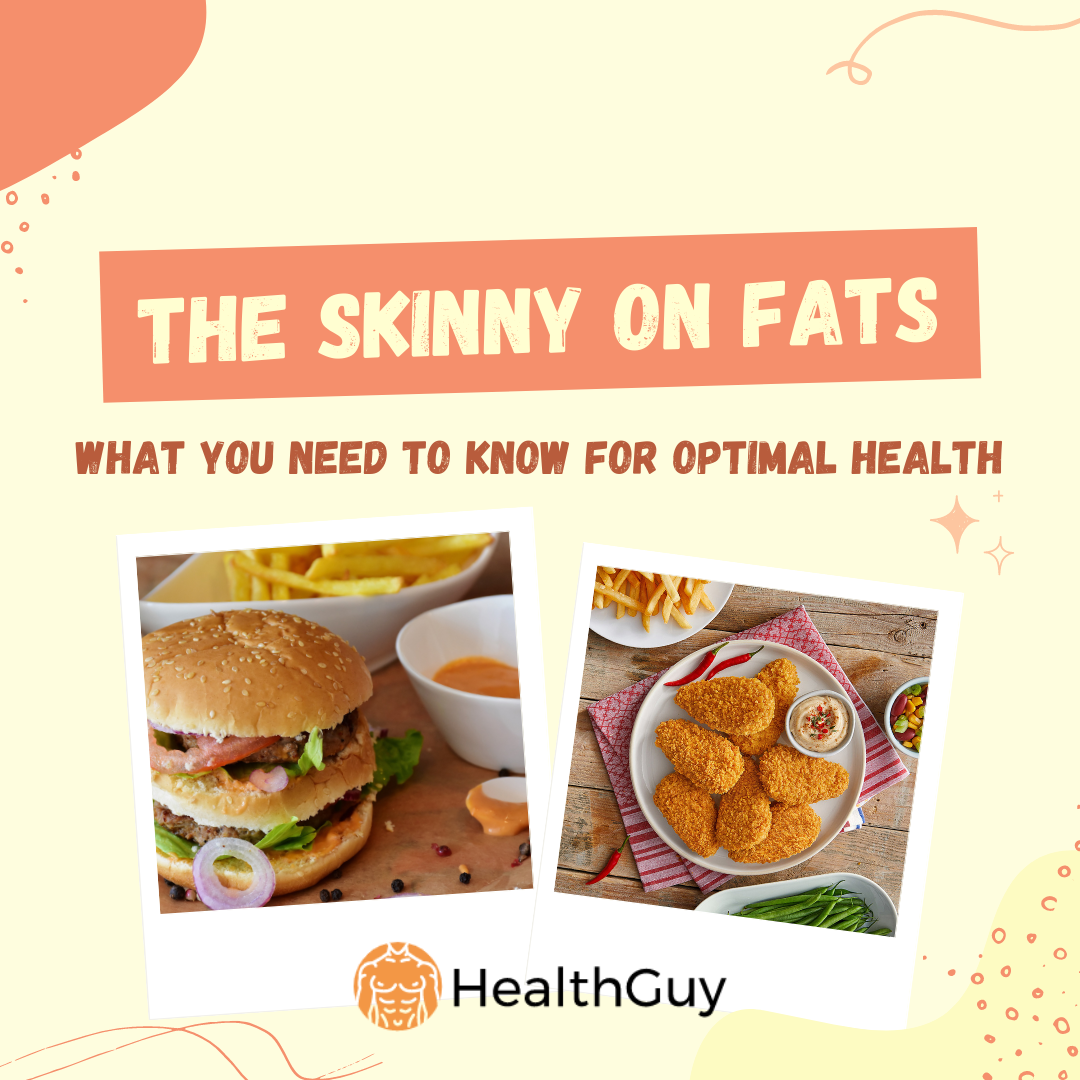
The Skinny on Fats: What You Need to Know for Optimal Health
Fats are an essential part of our diet, but not all fats are created equal. This article provides a comprehensive overview of fats, including their definition, the various types of fats and their effects on health, strategies for including healthy fats in your diet, and common myths and facts surrounding fats.
What are Fats?
Fats are a type of nutrient that our bodies need to function properly. They provide energy, help to absorb vitamins, and play a key role in maintaining healthy skin and hair. Fats are also important for brain function and hormone production.
Types of Fats
There are three main types of fats: saturated, monounsaturated, and polyunsaturated.
- Saturated Fats: These are typically solid at room temperature and are found in animal products such as meat and dairy products. Some examples of foods high in saturated fats are butter, lard, cheese, and fatty cuts of meat.
- Monounsaturated Fats: These are typically liquid at room temperature and are found in foods such as olive oil, avocado, and nuts. Some examples of foods high in monounsaturated fats are almonds, peanuts, cashews, and macadamia nuts.
- Polyunsaturated Fats: These are also liquid at room temperature and are found in foods such as vegetable oils, fatty fish, and nuts. Some examples of foods high in polyunsaturated fats are sunflower oil, soybean oil, flaxseeds, walnuts, and salmon.
Impact on Health
Consuming too much-saturated fat can increase the risk of heart disease while consuming monounsaturated and polyunsaturated fats in moderation can have a positive impact on our health. These fats can help to reduce inflammation, improve cholesterol levels, and reduce the risk of chronic diseases such as heart disease and type 2 diabetes.
Tips for Incorporating Healthy Fats into Your Diet
Here are some tips for incorporating healthy fats into your diet:
- Use olive oil or avocado oil for cooking instead of butter or lard.
- Snacks on nuts such as almonds or walnuts instead of chips or other processed snacks.
- Add fatty fish such as salmon or mackerel to your diet for a source of omega-3 fatty acids.
- Incorporate seeds such as chia or flaxseed into your diet by adding them to smoothies or oatmeal.
Myths and Facts about Fats
There are several myths and misconceptions about fats. Here are some common myths and facts about fats:
Myth: All fats are unhealthy and should be avoided.
Fact: While consuming too much-saturated fat can be harmful, consuming healthy fats in moderation can have a positive impact on our health.
Myth: Low-fat or fat-free foods are always healthier than their full-fat counterparts.
Fact: Many low-fat or fat-free foods are high in sugar and other additives, which can be more harmful to our health than consuming healthy fats.
Myth: Eating fat makes you fat.
Fact: Consuming excess calories, regardless of their source (fat, carbohydrates, or protein), can lead to weight gain. Eating healthy fats in moderation can be part of a healthy diet and may even help with weight loss.
In conclusion, fats are an essential part of our diet, but it’s important to choose the right types of fats for optimal health. By incorporating healthy fats into our diets and dispelling common myths and misconceptions about fats, we can enjoy the benefits of a well-rounded and nutritious diet.
